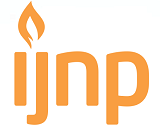Association Between Family Support and Nurse Motivation in Managing Patients with COVID-19
DOI:
https://doi.org/10.18196/ijnp.v5i2.13352Keywords:
Corona Virus (COVID19), Nursing, Nurse Motivation, Family SupportAbstract
Background: Coronavirus (COVID19) is a world public health emergency. The coronavirus transmission is highly fast that health workers are at high risk of contracting COVID-19.
It raises excessive anxiety for nurses when caring for COVID-19 patients, so one way to help reduce the fears and worries nurses face is by providing support and motivation from their families.
Purpose: This study aims to determine the relationship between family support and nurses’ motivation in caring for Patients with COVID19.
Methods: The method used was correlational quantitative, involving 84 nurses caring for Patients with COVID19.
Result: The results of the spearman rank test showed a p-value of 0,001 ≤ α 0,05, which indicated a relationship between family support and the motivation of nurses in caring for Patients with COVID19. Furthermore,the coefficient correlation (r = 0,362) had a low level of relationship with a positive direction of the relationship.
Conclusion: It can be concluded that family support is very important in the psychological dimension by positively affecting nurses' work motivation
References
Ali, H., Cole, A., Ahmed, A., Hamasha, S., &Panos, G. (2020). Major stressors and coping strategies of frontline nursing staff during the outbreak of coronavirus disease 2020 (Covid-19) in alabama. Journal of Multidisciplinary Healthcare, 13, 2057–2068. https://doi.org/10.2147/JMDH.S285933
Almasitoh, U. H. (2011). Stres Kerja Ditinjau dari Dukungan Sosial pada Perawat. Jurnal Psikologi Islam (JPI), 8(168), 63–82. http://doi.org/10.18860/psi.v0i1.1546
Awano, N., Oyama, N., Akiyama, K., Inomata, M., Kuse, N., Tone, M., Takada, K., Muto, Y., Fujimoto, K., Akagi, Y., Mawatari, M., Ueda, A., Kawakami, J., Komatsu, J., & Izumo, T. (2020). Anxiety, depression, and resilience of healthcare workers in japan during the coronavirus disease 2019 outbreak. Internal Medicine, 59(21), 2693–2699. https://doi.org/10.2169/internalmedicine.5694-20
Balay-odao, E. M., Alquwez, N., Inocian, E. P., & Alotaibi, R. S. (2021). Hospital Preparedness, Resilience, and Psychological Burden Among Clinical Nurses in Addressing the COVID-19 Crisis in Riyadh, Saudi Arabia. Frontiers in Public Health, 8, 573932. https://doi.org/10.3389/fpubh.2020.573932
Dagne, T., Beyene, W., &Berhanu, N. (2015). Motivation and Factors Affecting It among Health Professionals in the Public Hospitals, Central Ethiopia. Ethiopian Journal of Health Sciences, 25(3), 231–242. https://doi.org/10.4314/ejhs.v25i3.6
Yanti, N. P. E. D., Susiladewi, I. A. M. V., &Pradiksa, H. (2020). Gambaran MotivasiBekerjaPerawatDalam Masa Pandemi Coronavirus Disease (Covid-19) Di Bali. In Coping: Community of Publishing in Nursing 8(2). Community of Publishing in Nursing. https://doi.org/10.24843/coping.2020.v08.i02.p07
Demirtaş-Madran, H. A. (2020). Exploring the Motivation Behind Discrimination and Stigmatization Related to COVID-19: A Social Psychological Discussion Based on the Main Theoretical Explanations. Frontiers in Psychology, 11, 569528. https://doi.org/10.3389/fpsyg.2020.569528
Erdiana. (2015). DukunganKeluargaDalamKunjunganLansia di DesaCandigaronKecamatansuowomokabupatensemarang. In KTI. Tidakditerbitkanponorogo: Program studi D III KeperawatanFakultasIlmu Kesehatan Universitas Muhammadiyah Ponorogo.
Fadli, F., Safruddin, S., Ahmad, A. S., Sumbara, S., & Baharuddin, R. (2020). Faktor yang Mempengaruhi Kecemasan pada Tenaga Kesehatan Dalam Upaya Pencegahan Covid-19. Jurnal Pendidikan Keperawatan Indonesia, 6(1), 57–65. https://doi.org/10.17509/jpki.v6i1.24546
Galanis, P., Vraka, I., Fragkou, D., Bilali, A., &Kaitelidou, D. (2021). Nurses’ burnout and associated risk factors during the COVID-19 pandemic: A systematic review and meta-analysis. Journal of Advanced Nursing, 77(8), 3286–3302. https://doi.org/10.1111/jan.14839
Galehdar, N., Toulabi, T., Kamran, A., &Heydari, H. (2021). Exploring nurses’ perception of taking care of patients with coronavirus disease (COVID-19): A qualitative study. Nursing Open, 8(1), 171–179. https://doi.org/10.1002/nop2.616
Kuo, F. L., Yang, P. H., Hsu, H. T., Su, C. Y., Chen, C. H., Yeh, I. J., Wu, Y. H., & Chen, L. C. (2020). Survey on perceived work stress and its influencing factors among hospital staff during the COVID-19 pandemic in Taiwan. Kaohsiung Journal of Medical Sciences, 36(11), 944–952. https://doi.org/10.1002/kjm2.12294
Kustriyani, M., Kharisa, A. S., &Arifianto, A. (2018). Hubungan Antara MotivasiPerawatDenganKepatuhanPenggunaan Alat PelindungDiri (Handscoon Dan Masker) Di Instalasi Rawat InapRsud Dr. LoekmonoHadi Kudus. Journal of Holistic Nursing Science, 5(1), 36–42. https://doi.org/10.31603/nursing.v5i1.1877
Miladiyah, N., Mustikasari, M., & Gayatri, D. (2015). Hubungan Motivasi dan Komitmen Organisasi dengan Kinerja Perawat dalam Pelaksanaan Dokumentasi Asuhan Keperawatan. Jurnal Keperawatan Indonesia, 18(1), 9–16. https://doi.org/10.7454/jki.v18i1.392
Nahidi, S., Sotomayor-Castillo, C., Li, C., Currey, J., Elliott, R., & Shaban, R. Z. (2022). Australian critical care nurses’ knowledge, preparedness, and experiences of managing SARS-COV-2 and COVID-19 pandemic. In Australian Critical Care (Vol. 35, Issue 1, pp. 22–27). https://doi.org/10.1016/j.aucc.2021.04.008
Pai, R., Nayak, M., & Sangeetha, N. (2020). Palliative care challenges and strategies for the management amid COVID-19 pandemic in India: Perspectives of palliative care nurses, cancer patients, and caregivers. Indian Journal of Palliative Care, 26(5), S121–S125. https://doi.org/10.4103/IJPC.IJPC_182_20
Petrin R. L. (2020). Dampak Covid terhadap Kesehatan Mental Nakes : Hasil Pendampingan Tim Konseling RSCM.
Rahayu, W. E., &Sugiarto, P. (2019). HubunganDukunganKeluargaDenganMotivasiMelanjutkanStudi S1 KeperawatanMahasiswa Semester Vi Prodi Diploma IiiKeperawatanStikes Bethesda Yakkum Yogyakarta. Jurnal Kesehatan, 6(2), 142–148. https://doi.org/10.35913/jk.v6i2.124
Santos, L. M. Dos. (2020). The relationship between the covid-19 pandemic and nursing students’ sense of belonging: The experiences and nursing education management of pre-service nursing professionals. International Journal of Environmental Research and Public Health, 17(16), 1–18. https://doi.org/10.3390/ijerph17165848
Serly, S. M. (2019). KeterampilanPerawat dan PelaksanaanManajemen Care Bundle pada PasienCedera Kepala di InstalasiGawatDarurat Kota KupangSerly Sani Mahoklory. JurnalPenelitian Kesehatan SuaraForikes, 10(4), 281–284. http://dx.doi.org/10.33846/sf10407
Thai, T. T., Le, P. T. V., Huynh, Q. H. N., Pham, P. T. T., & Bui, H. T. H. (2021). Perceived stress and coping strategies during the covid-19 pandemic among public health and preventive medicine students in vietnam. Psychology Research and Behavior Management, 14, 795–804. https://doi.org/10.2147/PRBM.S317059
Vanchapo, A. R., Merlin, N. M., & Mahoklory, S. S. (n.d.). The correlation between workload and occupational stress of nurses in the emergency department. JurnalNers Dan Kebidanan Indonesia, 7(1), 1–5. https://doi.org/10.21927/jnki.2019.7(1).28-35
Xu, H., Stjernswärd, S., &Glasdam, S. (2021). Psychosocial experiences of frontline nurses working in hospital-based settings during the COVID-19 pandemic - A qualitative systematic review. International Journal of Nursing Studies Advances, 3. https://doi.org/10.1016/j.ijnsa.2021.100037
Downloads
Published
Issue
Section
License
License
Articles published in the IJNP (Indonesian Journal of Nursing Practices) are licensed under a Attribution 4.0 International (CC BY 4.0) license. You are free to:
- Share — copy and redistribute the material in any medium or format.
- Adapt — remix, transform, and build upon the material for any purpose, even commercially.
This license is acceptable for Free Cultural Works. The licensor cannot revoke these freedoms as long as you follow the license terms. Under the following terms:
Attribution — You must give appropriate credit, provide a link to the license, and indicate if changes were made. You may do so in any reasonable manner, but not in any way that suggests the licensor endorses you or your use.
- No additional restrictions — You may not apply legal terms or technological measures that legally restrict others from doing anything the license permits.
Copyright
Authors who publish with IJNP (Indonesian Journal of Nursing Practices) agree to the following terms:
- Authors retain copyright and grant IJNP (Indonesian Journal of Nursing Practices) the right of first publication with the work simultaneously licensed under an Attribution 4.0 International (CC BY 4.0) that allows others to remix, adapt and build upon the work with an acknowledgment of the work's authorship and of the initial publication in IJNP (Indonesian Journal of Nursing Practices).
- Authors are permitted to copy and redistribute the journal's published version of the work (e.g., post it to an institutional repository or publish it in a book), with an acknowledgment of its initial publication in IJNP (Indonesian Journal of Nursing Practices).














